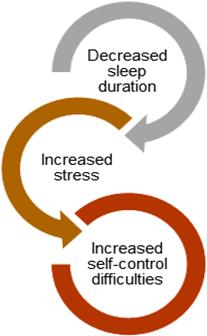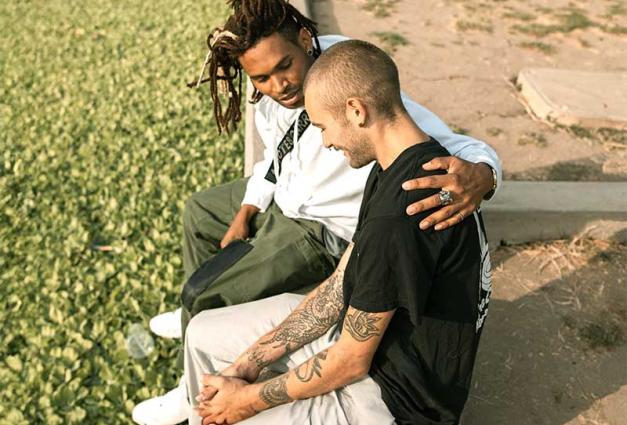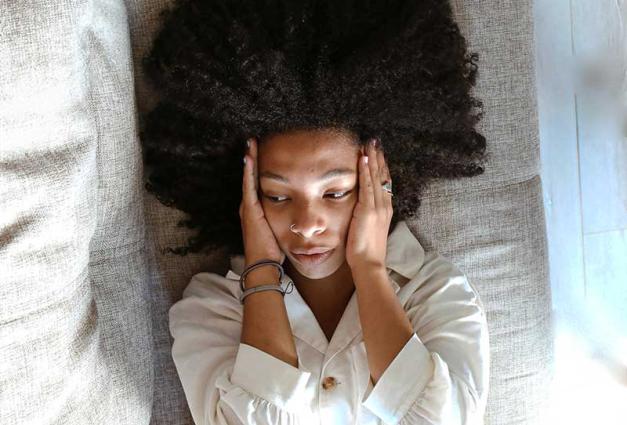Take a moment and think back to the last time you didn’t get enough sleep. How did you feel the next day? Tired? Irritable? Stressed? Although these are a few of the common problems that occur after a poor night of sleep, one particularly important consequence of sleep loss is the impaired ability for self-control. In other words, when we don’t get enough sleep, it is harder to control our desires and impulses—even when we know we should.
What kind of desires and impulses are hard to control? Classic examples of self-control include not eating a pint of Ben & Jerry’s ice cream while we are on a diet, walking away from a blackjack table before we lose all our money, and holding our tongue when a nasty boss yells at us. In other words, self-control involves ignoring what we want to do in the moment because we know it isn’t good for us long term.
And sleep loss makes self-control harder. After a night of poor or insufficient sleep, people are more likely to insult others, steal office supplies, and quit exercising early. Although there is a clear link between sleep loss and self-control difficulties, scientists are still exploring why this link exists. In our study, Zlatan Krizan, Tracy DeHart, and I examined increased stress as one potential explanation.
We recruited 211 college students to complete a survey each evening for 30 days, resulting in a total sample of approximately 5,500 daily reports. Each time they completed this survey, participants were asked how long they slept the night before, how stressful their day had been, and their experiences of self-control difficulty at that moment (for example, “Right now I am having a hard time controlling my urges”).
What did we find? Replicating prior findings, people reported experiencing greater self-control difficulties when they slept less the night before. In addition, people also had more stressful days after a night of short sleep, and more stressful days led to greater self-control difficulties.
We then examined the key question: Is increased stress part of the reason that sleep loss makes self-control more difficult? Indeed, it was. In fact, stress accounted for almost half of the effect of sleep loss on self-control difficulties! Sleep loss made the day more stressful, and being stressed then led people to have a harder time controlling themselves. This suggests that stress is one important reason for why sleeping too little can harm self-control.

Understanding that increased stress is a major reason that sleep loss undermines self-control gives us insight into how the negative effects of sleep loss can be decreased. It is a sad reality that a large proportion of the U.S. population chronically does not get enough sleep, leading people to have difficulties restraining and resisting temptations. But, if getting enough sleep is not a realistic option for you, how can you keep your sleepless nights from ruining your self-control?
Our research suggests that if you haven’t slept enough, you should make a special effort to manage your stress. For example, you could put off demanding tasks, practice mindfulness, or seek support from other people. Managing your stress when sleep deprived will help you avoid lapses of self-control—such as that late night raid on the refrigerator.
For Further Reading:
Hisler, G. C., Krizan, Z., & DeHart, T. (2018). Does stress explain the effect of sleep on self-control difficulties? A Month-long daily diary study. Personality and Social Psychology Bulletin, 45, 864-877.
Gordon, A. M., Mendes, W. B., & Prather, A. A. (2017). The social side of sleep: Elucidating the links between sleep and social processes. Current Directions in Psychological Science, 26, 470-475.
Huffington, A. (2016). The Sleep Revolution: Transforming Your Life, One Night at a Time. New York: Harmony.
Krizan, Z., & Hisler, G. (2016). The essential role of sleep in self-regulation. In K. D. Vohs & R. F. Baumeister (Eds.), Handbook of Self-regulation (3rd ed., pp. 182-202). New York, NY: John Wiley
Garrett Hisler is a Postdoctoral Associate at the University of Pittsburgh who is broadly interested in sleep but tends to study the dynamics among sleep, self-control, and personality.




